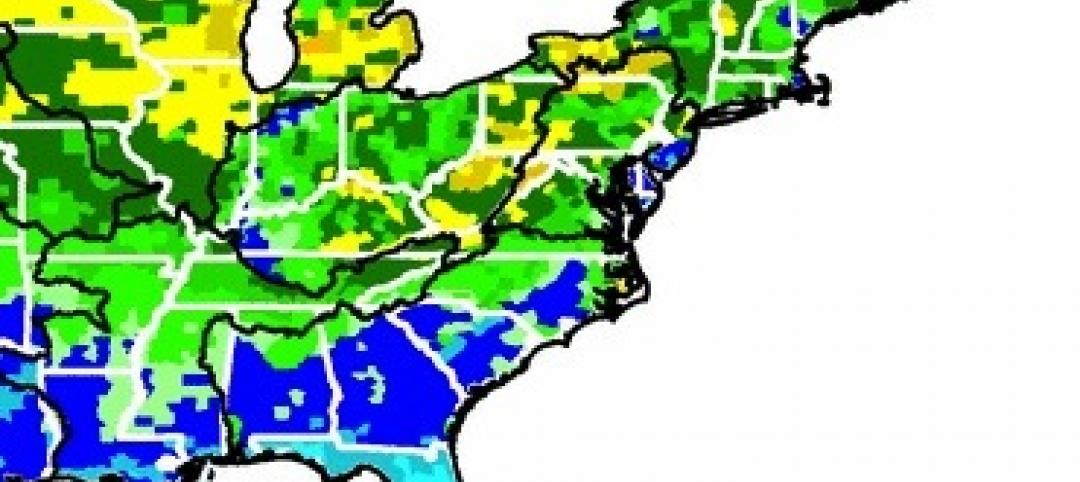A new report by the Union of Concerned Scientists (UCS) pinpoints portions of the U.S. at greatest risk of declining residential and commercial property values, and diminished city and county tax revenue due to flooding attributed to sea level rise.
The areas impacted face worse high tide flooding due to the effects of climate change, UCS says. The findings are the result of peer-reviewed analysis that used ZIP-code-by-ZIP-code data from Zillow Property Data.
The states found to be most at risk of flooding from rising seas are: Delaware, Georgia, Louisiana, Maryland, Massachusetts, New Jersey, New York, North Carolina, South Carolina, Texas, and Virginia. As much as 70% of some municipalities’ property tax bases could be at risk.
The analysis also provides risk assessment according to:
— Number of homes and commercial properties (by state and zip code).
— Current values of properties.
— The amount of money the properties contribute in annual property taxes, which fund schools, roads, and emergency services.
— How many properties could be spared if warming is limited to below 2 degrees Celsius.
— Near- and long-term impact projections, including within the next 30 years.
— Identification of areas where coastal property owners might experience recurring flooding so severe it limits their ability to live or work in these properties.
Related Stories
| Feb 19, 2014
USGBC introduces new online educational platform
The U.S. Green Building Council has introduced “Education @USGBC” a new educational platform.
| Feb 17, 2014
Channeling weather forecasts to building systems can yield significant energy savings
Using weather forecasts to predict outdoor temperature changes can lead to significant energy savings, exceeding 10%, researchers say.
| Feb 17, 2014
Lawmakers may take away control of Florida hospital project from the VA
The project is $100 million over budget and has missed its scheduled completion date.
| Feb 17, 2014
Business, labor at odds over toughening of OSHA silica dust rule
OSHA says the rules will protect workers and prevent 700 fatalities annually. Others say the rules would hurt businesses and jobs.
| Feb 17, 2014
Tulsa, Okla., mulls code change to require storm shelters in new schools
State and city officials are pushing for increased bonding capacity to pay for the storm shelters.
| Feb 13, 2014
Appraisal Institute issues guidelines on evaluating green property
The Appraisal Institute and the Institute for Market Transformation have issued guidelines for training property appraisers to evaluate green buildings.
| Feb 7, 2014
New LEED Dynamic Plaque system will measure building performance
The U.S. Green Building Council recently unveiled the LEED Dynamic Plaque, which is a new system designed for benchmarking and comparing post-occupancy building performance on a global scale.
| Feb 7, 2014
Los Angeles officials struggle to deal with needed seismic retrofits
Sixteen years ago, the Los Angeles City Council decided against requiring retrofits of existing buildings because of the projected cost and the threat of losing 20,000 apartment buildings.
| Feb 7, 2014
Los Angeles officials struggle to deal with needed seismic retrofits
Sixteen years ago, the Los Angeles City Council decided against requiring retrofits of existing buildings because of the projected cost and the threat of losing 20,000 apartment buildings.
| Feb 7, 2014
EPA, Freddie Mac collaborate on energy- and water-efficient apartments
Freddie Mac will gather data on energy and water use from property owners, and encourage lenders to spend on energy-efficient investments for multifamily housing.











